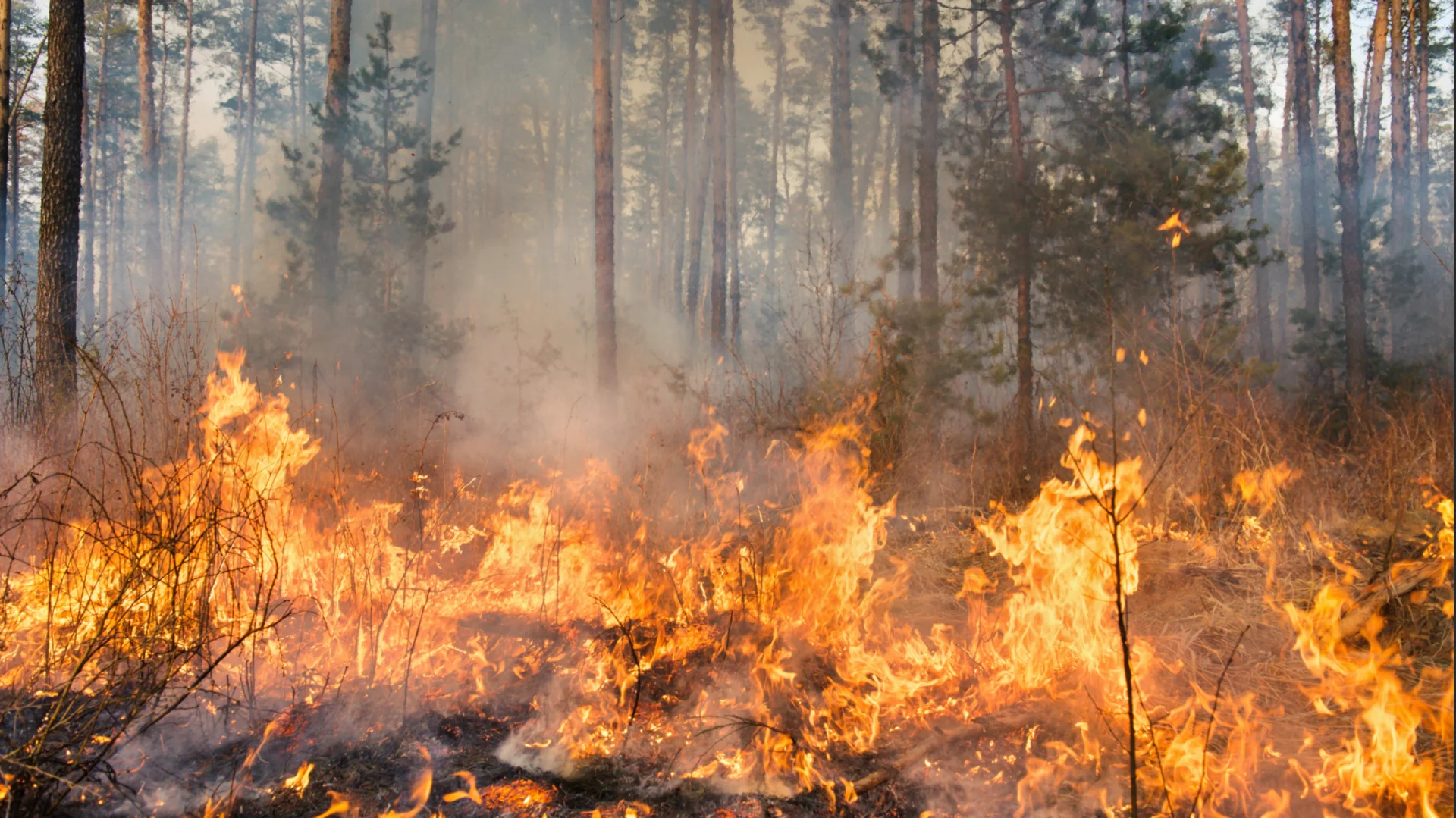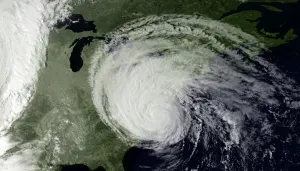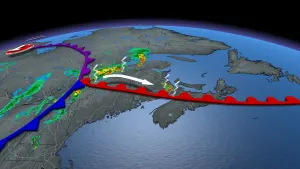
Firefighter recruitment, retention top of mind as QC heads into wildfire season
Nicolas Boulay says no one wants to relive last year's forest fire season.
He recalls battling exhaustion and 45 C heat while spending weeks away from home at a time to battle the unprecedented fires that resulted in smoke travelling as far south as Washington, D.C., and burning 5.2 million hectares in Quebec.
"It was really harsh, really difficult," said Boulay, a forestry firefighter for 14 years and union president of the Syndicat Pompiers Forestiers Côte-Nord.
"We're kind of putting on a mindset of 'it's coming' … we'll see when we get there."
It's a job Boulay loves. But looking ahead to this summer, he says the long days and difficult work is part of why his profession experiences such high turnover.
In April, the Société de protection des forêts contre le feu (SOPFEU) announced it would hire 160 people, including 80 firefighters, in the next two years — increasing its staff by 32 per cent.
Although SOPFEU says 50 firefighters have already been hired for this year's wildfire season, retaining experienced workers for a second potentially difficult season is both a priority and a challenge.

Nicolas Boulay and his colleagues helped control the forest fires last year. He says new personnel is positive news for Quebec's forest fire protection agency but will only make a difference if it finds ways to retain them. (Submitted to the CBC by Michael Coulombe)
Younger firefighters, higher turnover rate
While the hiring of new personnel is positive news for the organization, Boulay says it will only make a difference if SOPFEU finds ways to retain them.
"A very big concern is that not that many people have a lot of experience at SOPFEU," said Boulay, in an interview with CBC News shortly after SOPFEU announced its hiring blitz.
"With this many new firefighters coming we need to be very, very, aware of any dangerous situation. We don't want any accident to happen this summer."
He says the clock is ticking for SOPFEU's experienced firefighters to share their knowledge.
"It's very few people that can coach the newcomers," said Boulay. "We'll have this responsibility, collective responsibility, to make sure that people with less experience do not put themselves in danger."
Mélanie Morin, fire prevention and communications officer at SOPFEU, says new firefighters receive the same amount of tactical and safety training as experienced staff. But over the past few years, there has been "greater turnover."
"We see less, you know, 20- to 30- or 40-year career firefighters," said Morin. She said it's more common for firefighters to only stay on the job for a handful of seasons.
Morin says without taking into account the 50 new firefighters hired this year, the average firefighter has nine years of experience.
Boulay says he's noticed a younger workforce and pointed to the challenging working conditions.
Not only do staff work long days, he says, but also the salary scale doesn't reward firefighters who stick around.
"You cannot replace somebody with 25 to 30 years of experience. That's just impossible.… I think they really have to find ways to keep these guys in," said Boulay.
"You get people in, but if they leave after two or three years, you have to repeat. You repeat this process all the time."
Recruiting difficulties
The province is also missing 9 out of 40 water bomber pilots.
Quebec's Transport Ministry says it has 31 air bomber pilots, plus four chiefs and assistant chiefs who are also qualified to fly.
In an emailed statement, the ministry said to fully support SOPFEU, it needs 40 pilots in addition to the chiefs and assistant chiefs.
"Recruitment processes are underway," read the statement. "The department is working on measures to attract and retain specialized personnel."
Morin says these "recruiting difficulties" mean not all bombers will be in the air this year.
"We have turned around, looked at contingency plans, what other aircraft can we have on contract so that we are able to have the same type of response throughout the province," said Morin.
And this comes as Quebec's forest firefighters are set to strike — voting 99 per cent in favour of a strike mandate.
The Unifor union, which represents provincial fire service workers including firefighters, communications staff and mechanics, says the mandate allows members to strike "at the opportune moment."
Quebec law requires SOPFEU workers to maintain essential operations during a strike.
The union says negotiations have stalled over issues including salaries, vacations and workforce mobility.

A Canadair water bomber flies over Cappahayden, NL, in early June, 2023. Ten pilots for the CL-215 and the CL-415 models are still needed in Quebec. (Submitted to the CBC by Bruce Mactavish)
Chance of above-normal fire activity in western Quebec
There's a chance of above-normal fire activity in the western part of the province, according to Jonathan Wilkinson, the federal energy and national resources minister.
In a Thursday news conference on the 2024 wildfire season, Wilkinson said the forecasting continues to suggest an "alarming but somewhat predictable trend of hot and dry summers that present the perfect conditions for intense fires."
"The planet, as folks will see, is effectively burning up and climate change is a significant factor," said Wilkinson. "Last summer, Canadians experienced the most destructive forest fire season in our country's history."
He says Canada is working "aggressively" to be prepared.
Morin said firefighting teams started training about a month ahead of schedule.
She says, so far, May has been on par with the province's average for wildfires. But this time last year was "very similar," says Morin.
"When we think of 2023, we tend to only remember the very busy summer. But before that busy summer, we had a very quiet spring," she said.
Last year, SOPFEU trained community members and firefighters in half of the Cree communities in Quebec, said Juliette Ottereyes, fire protection administrator for the Cree Nation Government.
"They're learning the groundwork on how to fight forest fires," said Ottereyes, adding another 100 people will soon get that training.
Ottereyes says all Cree communities are meeting with their emergency teams and encouraging members of the community to prepare their homes and camps.
"We are expecting a fire threat to be the same as last year," she said.
RELATED: Protecting yourself from wildfire smoke
This article was written for the CBC by Rachel Watts. Header image: File photo for illustration purposes only. Courtesy: Canva Pro.









